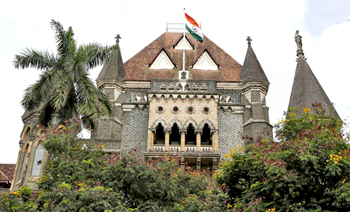New Delhi: With Arvind Kejriwal announcing that he will resign as Delhi Chief Minister soon and return to office only after the people's verdict on the allegations of corruption against him, the big question is who in the Aam Aadmi Party (AAP) will get the top job.
Assembly polls in Delhi are due in February next year, even though Mr Kejriwal yesterday demanded that the election be held in November along with the Maharashtra polls. Former Deputy Chief Minister Manish Sisodia, too, has said he will go to the people and return to the top office only after re-election. This effectively means that the top leaders of AAP are not in the race for the Chief Minister's post.
Even though this Chief Ministerial stint will only be for a few months, the AAP leadership would be looking to choose a prominent leader who can articulate the party's position on key issues and has wide acceptability among the party ranks.
Here are five leaders who can make the cut
Atishi:
Delhi Minister Atishi, holding key portfolios such as education and PWD, is one of the key contenders. An Oxford University alumnus and a Rhodes scholar, Ms Atishi has worked extensively in the AAP's flagship exercise to overhaul education in Delhi's schools. An MLA from Kalkaji, the 43-year-old became a minister after Mr Sisodia was arrested in a corruption case linked to Delhi's now-scrapped liquor policy. When Mr Kejriwal and Mr Sisodia were behind bars, Atishi articulated the party's position. On August 15, Mr Kejriwal chose her to hoist the tricolour at Delhi government's Independence Day event. While Delhi Lieutenant Governor VK Saxena foiled the plan, it was clear that the AAP leadership places a lot of faith in Ms Atishi.
Saurabh Bharadwaj:
Mr Bharadwaj is a three-time MLA from Greater Kailash and holds portfolios such as vigilance and health in the Arvind Kejriwal government. He, too, was named a minister after Mr Sisodia's arrest in the liquor policy case. Mr Bharadwaj, who has worked as a software engineer in the past, was also a minister in Arvind Kejriwal's 49-day government. He is also a national spokesperson of the AAP and was articulating the party's position when its top leaders were in jail after being arrested by central agencies in corruption cases.
Raghav Chadha:
A member of the AAP's national executive and political affairs committee, Mr Chadha is a Rajya Sabha MP from the party and one of its top faces. Mr Chadha has earlier worked as a chartered accountant and has been in the AAP since its inception. He has been an MLA from Rajinder Nagar and played a key role in the AAP's thumping victory in Punjab in the 2022 state polls. The 35-year-old is among the most prominent young politicians in the country and is known for articulating AAP's position on key issues in Parliament.
Kailash Gahlot:
Kailash Gahlot:
A lawyer by profession, Mr Gahlot is among the senior members of the AAP government in Delhi and holds key portfolios such as transport, finance and home affairs. The 50-year-old leader is MLA from Delhi's Najafgarh constituency since 2015. An advocate who has practised in both Delhi High Court and Supreme Court, he has served as a member executive in the high court bar association between 2005 and 2007
Sanjay Singh:
A Rajya Sabha MP since 2018, Sanjay Singh is one of the AAP's most prominent faces known for his spirited speeches in Parliament. The 52-year-old leader is among the founder members of the party and is a member of its national executive and political affairs committee. He is also a regular in the party's media interactions to articulate its position on key issues. Sanjay Singh was also arrested in connection to a corruption case linked to the Delhi liquor policy case and is currently out on bail, like Mr Kejriwal and Mr Sisodia.









Comments
Add new comment